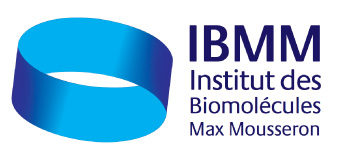Photon-in/photon-out spectroscopy to probe the electronic and geometric structure of heterogeneous catalysts
Séminaire Chimie ED459
Dr. Asma
Le Jeudi 25 Avril 2019 à 14h
ENSCM, Amphithéâtre Godechot (campus Balard, 240 av. Émile-Jeanbrau)
Date de début : 2019-04-25 14:00:00
Date de fin : 2019-04-25 15:30:00
Lieu : ENSCM amphi Godechot (campus Balard, 240 av E. Jeanbrau)
Intervenant : Dr. Asma
UCCS Unité de Catalyse et Chimie du Solide, UMR 8181, CNRS, Université de Lille 1, ENSC-Lille
Core level spectroscopies have earned in the last few decades a significant reputation of being a very powerful tool to probe both the electronic and chemical structure of matter, mainly thanks to the use of synchrotrons radiations sources. In 1970s it was found out that synchrotron radiation was a much more intense and versatile X-ray source than conventional X-Ray tubes leading to the construction of many storage ring around the world. Following, the rise of the third-generation synchrotrons providing X-ray beams 1012 times more brilliant than the one produced by early lab-based sources, the use of highly efficient detectors have enabled the development of core level spectroscopies to a high level of resolution and sensitivity. Hence experiments inconceivable only a two or three decades ago are now performed on almost a routine basis. In the meantime, development of theoretical aspects of core level spectroscopies and their implementation in users’ friendly software have allowed an accurate assignment of the spectral features to structural and electronic properties, thereby guiding experimentalists to understand and to reveal the properties and the structure of materials. The goal of this talk is to introduce two complementary core level spectroscopies: High Energy Resolved Partial Fluorescence Detection X-ray Absorption Spectroscopy (HERPFD-XAS) and Resonant Inelastic X-ray Scattering (RIXS). The application of these two photon-in/photon-out spectroscopies will be illustrated through examples from heterogeneous catalysis field.
Contact local ICGM : Prof. Lorenzo
